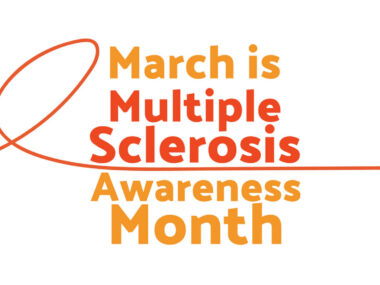Could Government Probe Threaten Pharma Patient Assistance Programs?
Written by |


Many of us have received help to pay for our MS medications. Now there’s a chance that assistance could be threatened.
A recent article in the The Wall Street Journal reports that U.S. government prosecutors are looking into whether some pharmaceutical companies’ patient assistance programs are on the wrong side of the law. These include direct copay assistance, donations to foundations that help patients pay for their meds, and even the practice of making healthcare professionals available 24/7 to answer patients’ questions.
The concern is whether these services promote the sale of the companies’ medications. If they do, they could be considered illegal. Investigators will look at whether the services violate a federal statute barring payments that prompt the prescribing of medications or other medical care that’s reimbursed by government health programs.
The Journal named Sanofi and Biogen as being among several pharmaceutical manufacturers being probed. Sanofi makes the MS medications Aubagio (teriflunomide) and Lemtrada (alemtuzumab). Biogen makes Tysabri (natalizumab), Avonex (interferon beta-1a), Tecfidera (dimethyl fumarate), and Plegridy (peginterferon beta-1a).
Connect with other patients and share tips on how to manage MS in our forums!
I’ve been treated with Avonex (I was in the original Phase 3 clinical trial), Tysabri, Aubagio, and Lemtrada. I received copay assistance from a foundation when I was being treated with Aubagio. I could not have afforded its copay without that assistance.
What is the government doing?
In the case of Sanofi, the Journal reports that government investigators have asked for information about the company’s “certified diabetes educator program.” That program, which Sanofi says is no longer active, answered questions from people with diabetes and helped them to use the company’s diabetes treatments.
It seems similar to Sanofi Genzyme’s “MS One to One” program for multiple sclerosis patients. Since I’m currently being treated with Lemtrada (and I’ve previously used Aubagio), I’ve interacted with “One to One” nurses. They follow my lab work and track any adverse effects the medication may have had on me. That tracking involves a Risk Evaluation and Mitigation Strategy that the Food and Drug Administration has required Sanofi Genzyme to implement.
(Full disclosure: In 2017, I was a paid participant in a group of social media influencers who spent a day advising Sanofi Genzyme marketing, P.R., and social media teams about communicating with MS patients.)
Similarly, according to the newspaper, Biogen has received a civil investigative demand for information about its relationships with “entities providing clinical education and reimbursement support services,” according to securities filings by Biogen last year. That sounds like Biogen’s patient assistance service called “Above MS.”
What’s the problem with support services?
The programs are a two-edged sword. On one side, they help patients use their medications as prescribed and keep a close watch on any adverse effects. They also make the treatments possible for many patients who, without copay assistance, would be unable to afford them. But, the Journal writes, “prosecutors and critics say such practices, even if helpful, are intended to encourage continued use of specific drugs over alternatives. Additionally, some critics say that such tactics can boost overall health-care costs by pushing higher-priced drugs on people.”
The other side of the sword is that these programs do help patients. Copay assistance has helped me. On social media sites, I read the laments of MS patients who badly need that financial assistance every day. And I feel more confident facing the possible adverse effects of Lemtrada knowing that Sanofi Genzyme is paying for monthly lab tests for me.
Do the pharma companies use their programs to push their own products? Sure. Just look at the programs’ websites. Do their patient services push up the cost of already expensive medications? Probably, at least to some extent. But would more patients be able to afford these treatments if the assistance programs were eliminated and the actual price of the medications was lowered significantly? That’s a question for which I’ve seen no answer.
What do you think?
You’re invited to follow my personal blog at www.themswire.com.
***



katherine
I currently am on Ocrevus for PPMS. Ocrevus is currently the only treatment approved for PPMS - I can tell you that without the Patient Assistance Program I would be unable to pay for the $64,000 treatment twice yearly! I work full time and have insurance - I have to hold onto my job as best I can so that my insurance can help me be seen by my Medical Team .. I would be unable to survive and any Quality of life would out the window !! In a world of "Managed Care" (translates to cheapest care if any ) and pre-existing conditions .. where would I fall? The older I get and my illness progresses the more apprehensive I become.. I work in the Medical field - you would think there would be more understanding tolerance of Handicapped people let alone employees - I can assure you they think in terms of how it affects their Dept / Clinic .. My clinic manager know nothing of MS or what Primary Progressive means in my diagnosis .. she actually believed the infusions would cure me .. sigh .. my previous manager gave me a desk job after a terrible fall I had here at work - but now the new manager is seeking to place me back on the floor .. my only option was to go to HR Benefits Specialist and have to complete a Reasonable Accommodation Request and my Medical Team needs to complete a Provider Certification -Accommodation Form ..no word of all the years I have worked and excelled. We will see.. fingers crossed. Peace
Ed Tobias
Hi Katherine,
I'm so sorry to hear about your problems.
My wife is a retired physical therapist, so I understand what you're saying about health care professionals. Unfortunately, some people just have very narrow eyesight when it comes to viewing people with a handicap, even if they're in the h/c field. I think you made the right choice by going to HR and requesting an accommodation.
Good luck with Ocrevus. I hope it will stop your progression in its tracks, or at least slow it. And let's all of us do what we can to prevent the government from taking away the benefits that we have.
Ed
louise
It's not likely that the prices would be lowered by any significant amount. At least not enough for those with MS who either can only work part time....or can't work at all to be able to afford. If no money is coming in, it can't be spent. Even if an MS patient can work full time it is probably because they have obligations...family..pets...home and on top of that health care for non MS related issues. Most jobs are not bringing in 6 figures. Without assistance many of those patients just would not be able to afford treatment. At what time in our moral evolution did we decide it was okay for people to suffer because they couldn't afford medical care. "only the strong survive and the weak die"...give me a break. Look at Stephen Hawking and tell me he didn't help create a smarter world? Even if by just inspiring others to reach for the stars. We seem to care more about feeding people in other countries, rescuing refugees, and saving the planet than we do about the people living on the street behind us. The government has their heads up their collective Arses, if they don't ensure that medicine is affordable, then they should back off.
Ed Tobias
Good points, Louise.
Ed
huri tursan
I agree with criticism of government meanness toward the sick who need financial support Louise. This all a question of trickle down economic policies. Moreover, nowhere in the world does generosity towards hunger in poorer countries, saving refugees, environmental concerns replace internal spending. Especially the current USA administration which is defying the entire world with signing out on all international agreements while increasing spending on the military, the police forces etc.
Andy B
I could be wrong, but I see the copay assistance and the patient navigator programs as two separate issues. Leaving aside the copay assistance, I think there may be some differences between the MS patient navigator programs and those for other conditions.
Since MS drugs are tested on much smaller populations, I could be wrong but I believe most drug manufacturers are required to follow up and continue to report information to the FDA. I would think these navigator programs are one of the primary avenues for that information. I can see other conditions that don't require as extensive post-approval monitoring as having more of a marketing slant to them.
Ed Tobias
Andy,
I agree that copay assistance and patient navigator programs SHOULD be separate issues. But, according to the Wall Street Journal article, in the eyes of the investigators they both promote the use of certain medications. You can click though to the full article, but here's part of what it says about this:
"...prosecutors and critics say such practices, even if helpful, are intended to encourage continued use of specific drugs over alternatives. Additionally, some critics say that such tactics can boost overall health-care costs by pushing higher-priced drugs on people."
Ed
Stacey Guenther
Aubagio and Ocrevus helped me immensely with the co-pay. I’ve also been on non-MS medications that helped, too. I don’t have a lot of money and the manufacturers of Ocrevus pay for my medication and for the infusion process. I only have to pay $5 for each. I’d really be struggling if it weren’t for their help, even to the point of stopping therapy.
Sharon Rettig
My humble opinion: we have no lower price option. Also I must say America helping poor, hungry and refugees has no effect on what I call GREED. The drug manufacturer's are in the business to turn a profit.